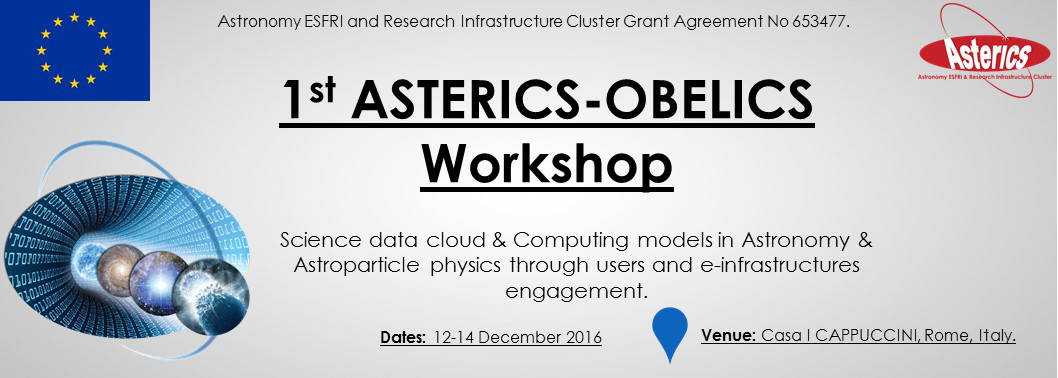Speaker
Dr
Denis Bastieri
(Padova University & INAF)
Description
Astronomy has always been the pathfinder among fellow sciences: It was the first natural science to emerge worldwide, in Babylonia, Asia and America, it was the first science to enter the modern era, with the first observations by Galileo Galilei, it is the first science to challenge human capabilities in the information age, as it is already operating in the realm of PetaBytes and PetaFLOPs and entering soon, with FAST and SKA, into the new age of Exa scale computing.
Given the fact that the electric power that is available is limited, we are investigating the feasibility of an approach using Low-Power Computing (LPC).
On the way to Peta scale, the CTA project could follow the footsteps of ASTRI, a mini array of Cherenkov telescopes, under construction in a remote site far away from human activities, in order to achieve optimal observation conditions for gamma-ray astronomy. In such a scenario, the capability of each telescope to process its own data before sending them to a central acquisition system provides a key advantage. We implemented the complete analysis chain required by a single telescope on a Jetson TK1 development board, overcoming the required real-time processing speed by more than a factor two, while staying within a very small power budget.
The presentation of the architecture and the accomplished performance for ASTRI will be followed by a "what's next" in Low-Power Computing, where we show how traditional accelerators, like mainframe GPUs, could be supported or substituted by ARM processors and FPGA.

